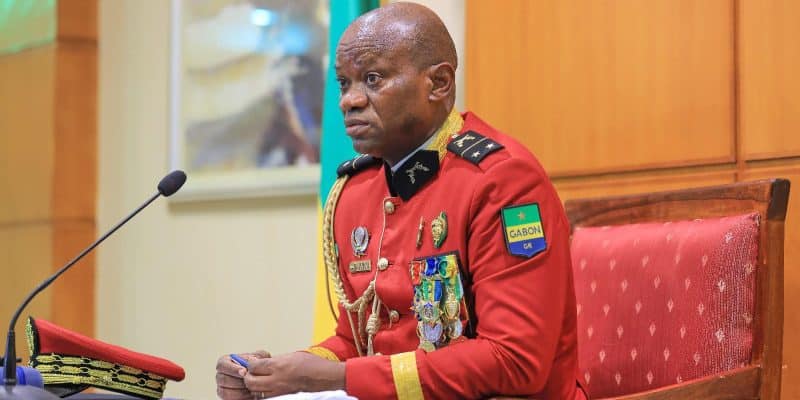Brigadier General Brice Clotaire Oligui Nguema is one of the heads of state who will be taking part in the summit of the world's three forest basins from 26 to 28 October 2023. Gabon's new strongman, who officially took office on 4 September, will have to seize this very first opportunity to reassure the rest of the international community about the green diplomacy that Gabon pursued until he took power.
Brigadier General Brice Clotaire Oligui Nguema, who came to power in the coup d’état of 30 August 2023, has not yet had an international platform to express his government’s positions on environmental issues, and more specifically on forest protection. Now he has been given the opportunity, as part of the summit of the world’s three forest basins, to be held from 26 to 28 October 2023 in Brazzaville.
In the invitation addressed to him by the President of the Republic of Congo, who is also Chairman of the Congo Basin Climate Commission, Denis Sassou-Nguesso states that “together, we have the duty and the power to bequeath to future generations a legacy of preservation and protection of our planet. Your presence and your commitment at this crucial summit are essential if we are to succeed in this noble mission”.
What concerns more than one observer of the case of Gabon, therefore, is whether the Chairman of the Committee for the Transition and Restoration of Institutions (CTRI) has the same level of ecological sensitivity that characterised the Bongo reign (1967 – 2023).
Champion of forest protection
Libreville’s efforts to preserve its forest are recognised around the world, and have been rewarded on several occasions. According to the Central African Forest Initiative (CAFI), a multi-donor fund managed by the United Nations (UN) that aims to allocate 150 million dollars to support conservation efforts in Central African countries, Gabon has achieved excellent results in preserving its forest cover through the creation, in the space of 20 years, of the Akanga, Birougou, Ivindo, Loango, Lopé, Mayumba, Minkébé, Monts de cristal, Moukalaba-Doudou, Mwagna, Plateaux Batéké, Pongara and Waka national parks. For its rich biodiversity, the Lopé National Park is a UNESCO (United Nations Educational, Scientific and Cultural Organisation) World Heritage Site.
On Friday 7 October 2022, the United Nations Framework Convention on Climate Change (UNFCCC) published́ its report on the technical analysis of Gabon’s activities over the period 2010-2018 on reducing emissions from deforestation, forest degradation, and conservation of forest carbon stocks, sustainable forest management and enhancement of forest carbon stocks (REDD+).
Read also-Summit of the 3 basins: NGOs want action during the Brazzaville conclave
The conclusions of the UNFCCC report indicate that over the period 2010-2018, Gabon has reduced its CO2 emissions by 90.6 million tonnes compared to average emissions between 2000-2009. On the basis of its status as a high forest cover, low deforestation (HFLD) country, the UNFCCC validated́ 187,104,289 tonnes of REDD+ credits for Gabon. They also attest that the data and information provided by the country are “compliant with the guidelines” in force and “transparent”. Based on these findings, Gabon has been certified for REDD+ credits for the period 2010-2018.
Boris Ngounou







